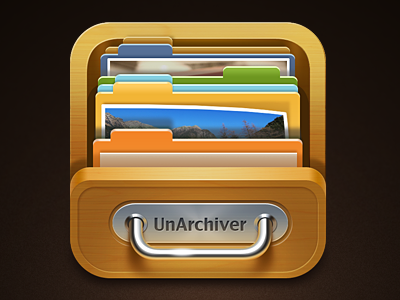
User-friendly looks The appearance of this utility is meant to encourage even novices to manage their archives without. It will open common formats such as Zip, RAR (including v5), 7-zip, Tar, Gzip, and Bzip2. Unarchiver One is one of the applications that can fulfill both these roles.

#THE UNARCHIVER WINDOWS ARCHIVE#
Unarchiver.exe is located in my AppData/Roaming folder and was created on 12/10.Īny help with when this file is would be greatly appreciated. The Unarchiver is a small and easy-to-use program that can unarchive many different kinds of archive files. Any version of The Unarchiver distributed on Uptodown is completely virus-free and free to download at no cost. Download rollbacks of The Unarchiver for Mac. I've never had a low virtual memory issue in the past. It includes all the file versions available to download off Uptodown for that app. I'll open up task manager and briefly see unarchiver.exe running, then disappear and my CPU usage goes back down. For Mac/Windows, crop image to application window only (not entire desktop). What I do know about this application is that my CPU utilization has been high during basic use. The Unarchiver is a much more capable replacement for Archive Utility.app. Everything keeps pointing to this "The Unarchiver" application, but I've never downloaded it, and I'm fairly certain this isn't the same thing. Note that the process may be slightly different for the software you’re using, but this is a general idea.
#THE UNARCHIVER WINDOWS FULL#
Watch the full video: Unzip Multiple Files in One Click Windows 10. I cannot find any information on this whatsoever. On Windows: Right-click > Choose your application > Extract The image above comes from a tutorial video from BenoniTech. Within, the details note that there are few applications are hogging up virtual memory. Looking at the event viewer system logs, the one standout item (to me, anyways) is Event ID 2004, Resource-Exhaustion-Detector. I've noticed my computer has been restarting when not in use several times per day for about a week now. Download this app from Microsoft Store for Windows 10, Windows 10 Mobile, Windows 10 Team (Surface Hub).

Original: I've searched high and low for some sort of answer here, but Google has been surprisingly unhelpful. Some users claim that deleting the unarchiver.exe file in your User directory has solved their issue as well. It's been 3 months and nothing has come back.

My solution to this issue was a system restore.
#THE UNARCHIVER WINDOWS UPDATE#
Update: Since this post has gained some popularity in the months following my original post, I figured I'd throw a quick update in to help find the solution without needing to review the comments.


 0 kommentar(er)
0 kommentar(er)
